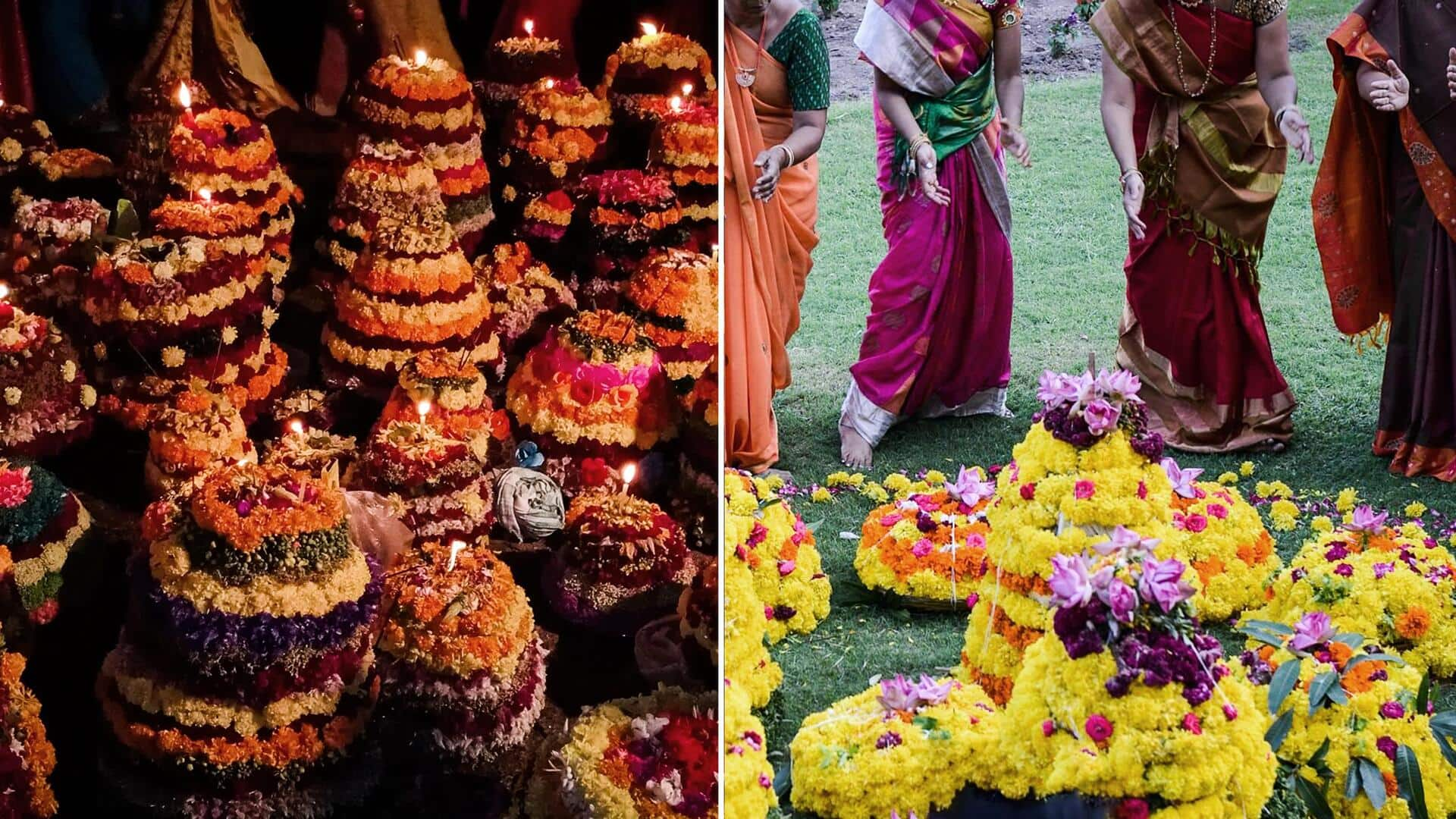
Bathukamma: Understanding this flower festival of Telangana
What's the story
Today marks the beginning of Bathukamma, a nine-day bright and alluring celebration that takes place in Telangana and some parts of Andhra Pradesh. Bathukamma, which translates to "Mother Goddess come alive" is a floral extravaganza that is primarily celebrated by women and brings in the spirit of autumn with an explosion of colors, zeal, and a strong connection to nature and history.
Celebration
How the festival is observed
Flowers of various colors are expertly arranged in circular rows, one layer on top of the other, on a brass plate or a tambalam. These arrangements are called "Bathukamma." Then it is maintained before prayers are said and the family goddess is invoked. Women chant and dance all around Bathukamma shrines as stories about the deity are narrated in a particular Telangana dialect.
Significance
Significance
Telugu natives view Bathukamma as their mother, the source of life, and their energy. During the event, the Telugu community worships Goddess Gowri (Maa Durga) by erecting "gaurammas," or conical turmeric mounds, atop the Bathukamma flower shrines. The festival, which typically falls in September-October, coincides with the conclusion of the monsoon season and the onset of autumn.
Quote
At the onset of the harvest festival
Bathukamma was historically a festival held to thank Goddess Parvati for her blessings on the crop harvest and the revenue she contributed to the current year, as well as to re-ask her for her blessing on the upcoming year.
Nine days
Nine days of festivity
Bathukamma is a nine-day festival, with each day dedicated to a different type of flower and color. The last day, called Saddula Bathukamma, is the most important when the tallest and most elaborate Bathukamma is prepared. Women, dressed in their best, carry these flower stacks to a local waterbody, singing songs of praise and gratitude to Goddess Bathukamma to immerse it.
Cultural impact
Cultural impact
The celebration of Bathukamma honors women and represents the Goddess who protects them. During the festival women of all ages come together to create these beautiful floral stacks, transcending boundaries of caste, creed, and social status. Women prepare a variety of traditional Telugu dishes, including sweets, savories, and curries, which are offered to the Goddess and then shared among the community.